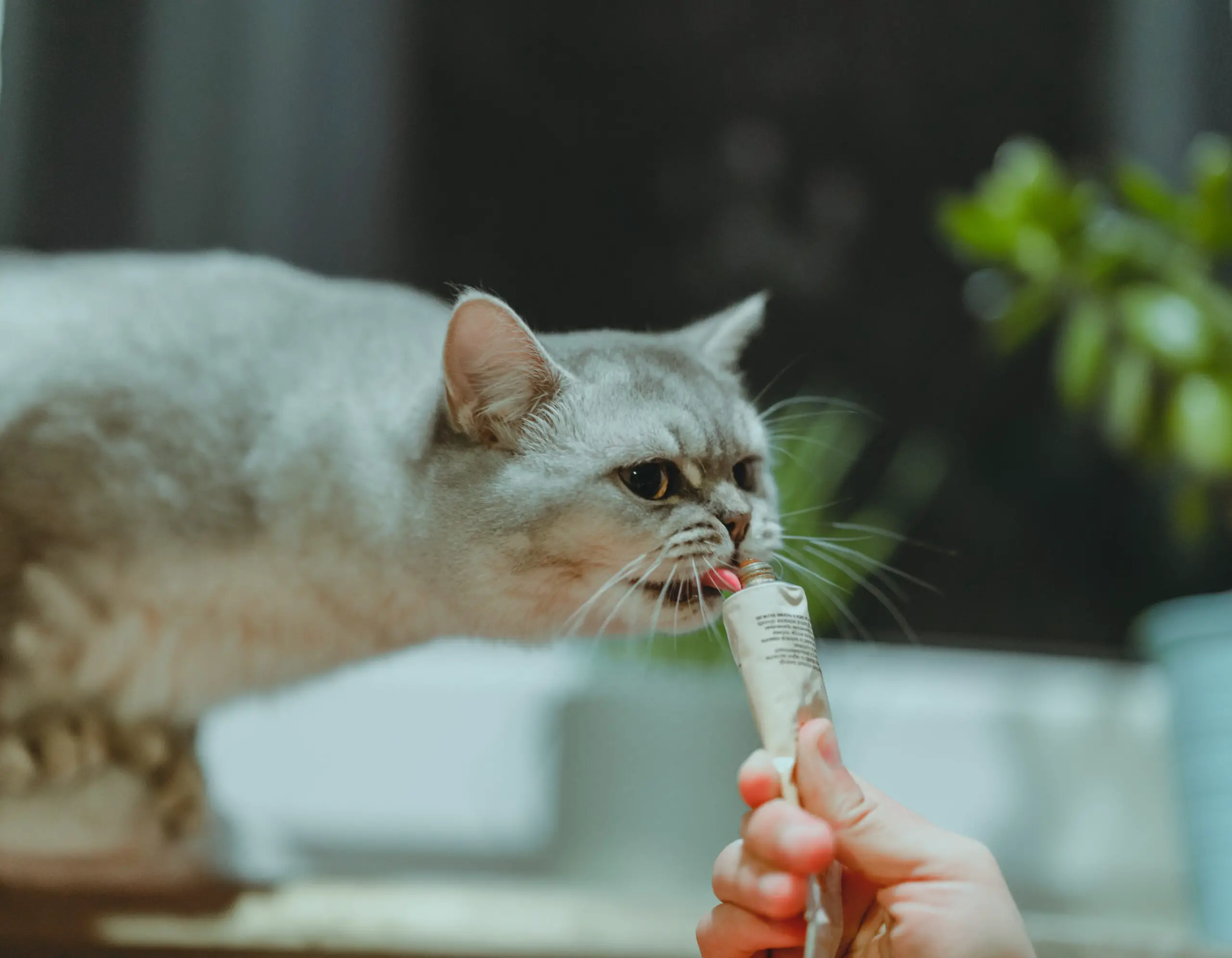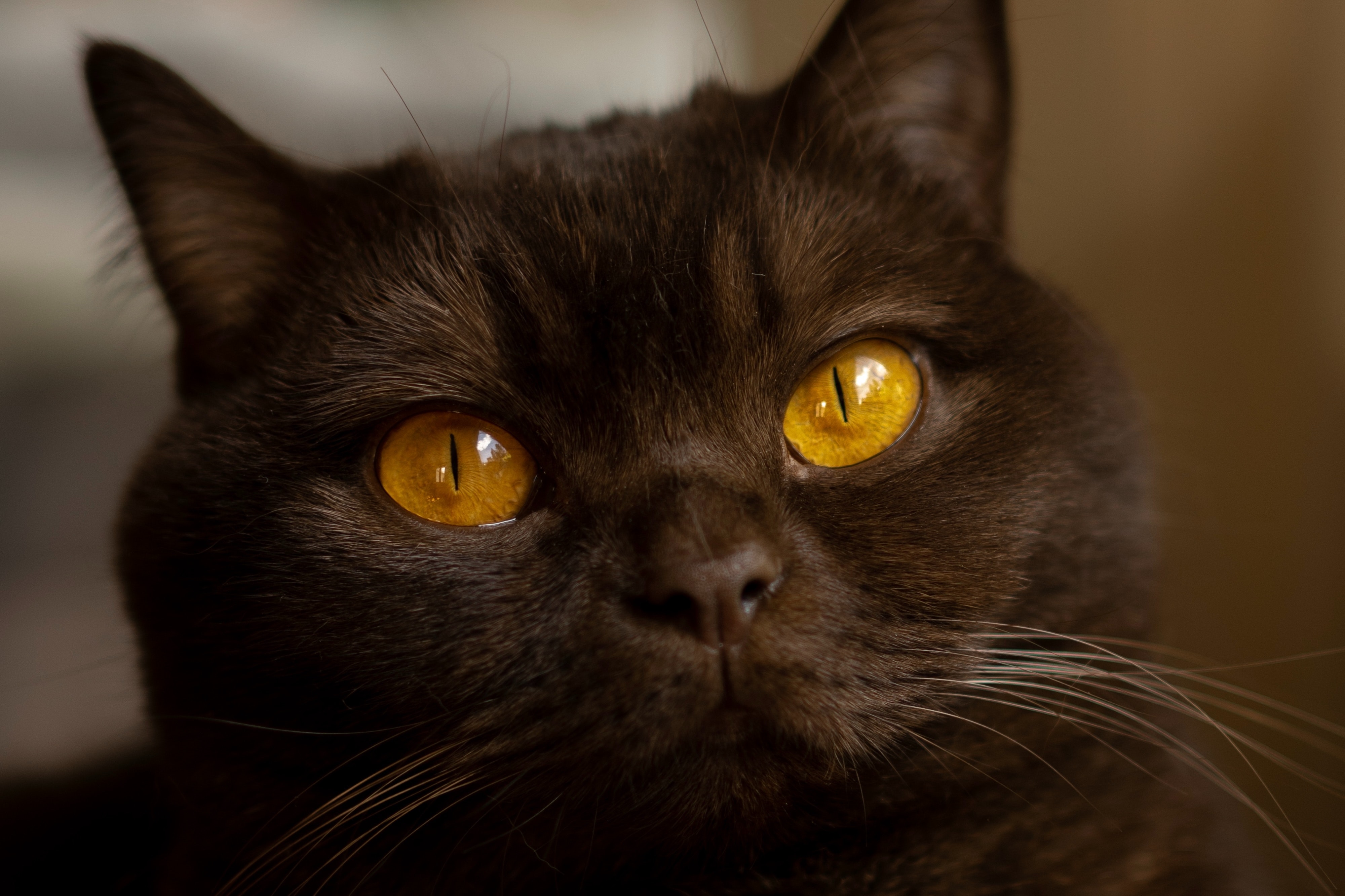Table of Contents
Cats are curious creatures that love to explore and try new things, but when it comes to the question can cats eat peaunt butter, pet owners need to be extra cautious. Peanut butter is a popular treat among humans and cats alike, so the question arises:
Can cats eat peanut butter? The answer may surprise you! Before making any decisions about feeding your cat peanut butter, take into consideration the nutritional value of this snack for felines as well as potential risks associated with it.
This article will cover all aspects of feeding your cat peanut butter in order to ensure their health and safety while still giving them a delicious treat they’ll love!
Table of Contents:
- Nutritional Value of Peanut Butter for Cats
- Potential Benefits of Feeding Peanut Butter to Cats
- Potential Risks of Feeding Peanut Butter to Cats
- How to Safely Feed Peanut Butter to Cats
- FAQs in Relation to Can Cats Eat Peanut Butter
- Conclusion
Nutritional Value of Peanut Butter for Cats
Protein Content: Peanut butter is a good source of protein for cats, with about 8 grams per 2 tablespoons. This makes it an ideal snack for cats who are in need of extra protein in their diet.
It’s important to note that the type of peanut butter you choose should be natural and unsweetened, as some brands contain added sugar or other unhealthy ingredients.
Fat Content: Peanut butter also contains healthy fats, which can help keep your cat’s coat looking shiny and healthy. Two tablespoons of peanut butter contain 16 grams of fat, most of which comes from monounsaturated and polyunsaturated fatty acids.
These types of fats have been linked to improved heart health in humans and may offer similar benefits to cats as well.
Vitamin and Mineral Content: Peanut butter is a great source of several vitamins and minerals that are essential for feline health, including vitamin E, magnesium, phosphorus, potassium, zinc, iron, copper and selenium.
Vitamin E helps support immune system function while the other minerals play important roles in bone health and metabolism regulation.
While peanut butter does provide many nutritional benefits for cats when consumed in moderation, its high calorie content means it should not be overfed to your pet companion.
Two tablespoons contain 190 calories, so portion control is key if you decide to give your cat this tasty treat. Understanding the nutrional value should help cat owners to understand can cats eat peanut butter.
Potential Benefits of Feeding Peanut Butter to Cats
Peanut butter can be a great treat for cats, but it is important to understand the potential benefits and risks of feeding peanut butter to cats.
Improved Skin and Coat Health
Feeding your cat peanut butter may help improve their skin and coat health. Peanut butter contains essential fatty acids which are beneficial for maintaining healthy skin and fur. These fatty acids also help keep your cat’s coat shiny and free from dandruff or other irritations.
Additionally, some brands of peanut butter contain vitamins A, D, E, K that promote healthy skin cells in cats.
Improved Digestive Health
Cats who eat peanut butter may benefit from improved digestive health as well. Peanut butter contains fiber which helps support regular bowel movements in cats by aiding digestion.
It also contains magnesium which helps regulate acidity levels in the stomach so that food passes through more easily without causing any discomfort or indigestion issues for your pet.
Increased Energy Levels
The high fat content found in most types of peanut butter can provide an energy boost for cats who need a little extra pep in their step. The fats found in peanuts are easy to digest and provide long-lasting energy throughout the day so your kitty will have plenty of energy to play with you or explore around the house.
Improved Cognitive Functioning
Finally, feeding your cat peanut butter may even improve their cognitive functioning over time. The omega-3 fatty acids found in peanuts have been linked to improved memory retention as well as better problem solving skills – both very important abilities when it comes to keeping curious kitties safe.
Plus, these same fatty acids have been shown to reduce inflammation associated with age-related cognitive decline making them ideal treats for senior felines too.
Potential Risks of Feeding Peanut Butter to Cats
Peanut butter can cause allergic reactions in cats, just as it can in humans. Symptoms of an allergy may include sneezing, coughing, vomiting, or diarrhea. If your cat has any of these symptoms after eating peanut butter, discontinue feeding it to them immediately and consult with a veterinarian.
Obesity Risk: Feeding too much peanut butter to cats can lead to obesity due to its high fat content. It is important to follow the serving size guidelines for feeding peanut butter and monitor your cat’s weight regularly if you are going to feed them this treat.
Choking Hazard: Peanut butter is sticky and thick which makes it difficult for cats (and humans) to swallow without chewing properly first. This means that there is a risk of choking if they try to swallow large pieces without breaking them down first.
To reduce this risk, make sure that the pieces you give your cat are small enough for them chew easily before swallowing.
There have been reports of some brands of peanut butter containing toxins such as xylitol, which can be toxic for cats when ingested in large amounts over time.
Therefore, it is important to always check the label before buying any type of food product intended for human consumption but not specifically designed for pets like cats.
How to Safely Feed Peanut Butter to Cats
When it comes to feeding peanut butter to cats, safety should be your top priority. Peanut butter can provide many nutritional benefits for cats, but there are also potential risks that you need to consider before deciding if it is the right choice for your pet.
Choosing the Right Type of Peanut Butter: It is important to choose a type of peanut butter that does not contain any added sugar or salt as these ingredients can be harmful for cats.
Additionally, make sure that the peanut butter does not contain xylitol which is an artificial sweetener found in some brands and can cause serious health issues in cats.
Serving Size Guidelines: The serving size will depend on your cat’s weight and activity level so it is best to consult with your veterinarian about how much peanut butter you should feed them each day.
Generally speaking, a teaspoon per 10 pounds of body weight per day should be enough but this may vary depending on individual needs.
Monitoring Your Cat’s Reaction: When introducing new foods into their diet, always monitor closely for any signs of adverse reactions such as vomiting or diarrhea which could indicate an allergy or intolerance.
If you notice any changes in behavior after giving them peanut butter then stop feeding it immediately and contact your vet for further advice.
Feeding peanut butter safely requires careful consideration and monitoring, but when done correctly it can offer many nutritional benefits for cats, such as improved skin and coat health, increased energy levels, improved cognitive functioning, and better digestive health overall.
FAQs in Relation to Can Cats Eat Peanut Butter
Is peanut butter toxic to cats?
No, peanut butter is not toxic to cats. However, it should be given in moderation as a treat due to its high fat and calorie content. It’s important to check the label for added sugar or other ingredients that may be harmful if ingested by cats.
Additionally, some cats may have an allergy or sensitivity to peanuts so caution should be exercised when introducing them into your cat’s diet.
What if my cat ate peanut butter?
Peanut butter is generally safe for cats to eat in small amounts. However, it should not be a regular part of their diet as it can cause digestive upset and may contain added sugar or salt which could be harmful.
If your cat has eaten peanut butter, monitor them closely for any signs of an allergic reaction such as vomiting, diarrhea, or difficulty breathing. If you notice any of these symptoms contact your veterinarian immediately for further advice and treatment.
How much peanut butter can a cat have?
Cats should not be given peanut butter as a treat or snack. Peanut butter is high in fat and can cause digestive upset, vomiting, and diarrhea if consumed in large amounts. It also contains xylitol which is toxic to cats.
If your cat accidentally consumes some peanut butter, it’s best to monitor them for any signs of distress and contact your veterinarian immediately if you notice anything unusual. In general, the amount of peanut butter that a cat can have safely is zero; it should never be part of their diet.
What kind of peanut butter can cats eat?
Cats can safely eat peanut butter that does not contain xylitol, an artificial sweetener. Xylitol is toxic to cats and can cause a drop in blood sugar levels, seizures, liver failure, and even death. When selecting peanut butter for your cat, make sure it only contains peanuts and salt as the ingredients.
Avoid any brands with added sugars or other additives like hydrogenated oils. If you are unsure if the peanut butter is safe for your cat to consume, consult with your veterinarian before feeding it to them.
Conclusion
In conclusion, the answer to the question “can cats eat peanut butter?” is yes, but with caution. Peanut butter can provide cats with a number of nutritional benefits and even be used as an occasional treat.
However, it should only be fed in moderation due to its high fat content and potential for choking or digestive issues. If you choose to feed your cat peanut butter, make sure that it does not contain any added sugar or salt and always supervise them while they are eating it.
Do you have a cat that loves to eat? Are you curious if peanut butter is safe for them to consume? Look no further! Our pet website provides answers and solutions tailored specifically for cats.
We provide the latest research on feline nutrition, safety tips, product reviews and more so your furry friend can enjoy all the benefits of eating peanut butter in moderation. Don’t wait – visit our site today and get informed about how to safely give your kitty their favorite snack!
Cats can safely eat peanut butter that does not contain xylitol, an artificial sweetener. Xylitol is toxic to cats and can cause a drop in blood sugar levels, seizures, liver failure, and even death. When selecting peanut butter for your cat, make sure it only contains peanuts and salt as the ingredients. Avoid any brands with added sugars or other additives like hydrogenated oils. If you are unsure if the peanut butter is safe for your cat to consume, consult with your veterinarian before feeding it to them.<\/span><\/p> Cats can safely eat peanut butter that does not contain xylitol, an artificial sweetener. Xylitol is toxic to cats and can cause a drop in blood sugar levels, seizures, liver failure, and even death. When selecting peanut butter for your cat, make sure it only contains peanuts and salt as the ingredients. Avoid any brands with added sugars or other additives like hydrogenated oils. If you are unsure if the peanut butter is safe for your cat to consume, consult with your veterinarian before feeding it to them.<\/span> "}}]}

